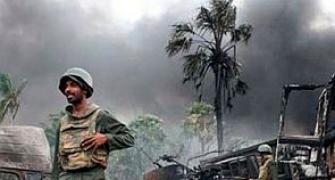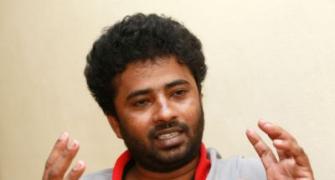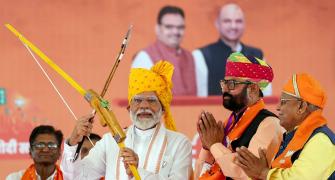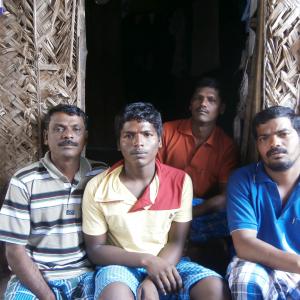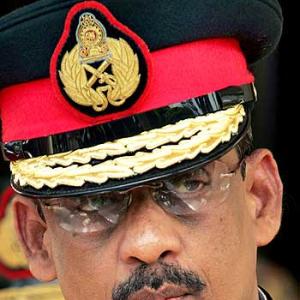'It is up to New Delhi to take quick advantage of the turn of events in Sri Lanka.'
'Otherwise, Beijing's economic clout and the deep roots it has grown in the island nation may well tempt the new President to play the India versus China game,' says Nitin A Gokhale.
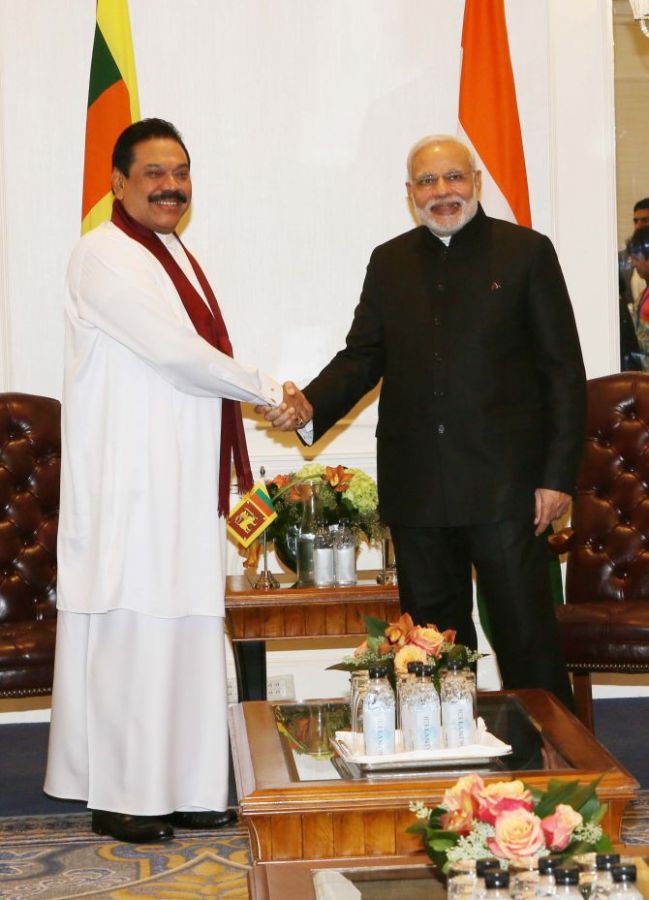 Hubris and overconfidence did Sri Lanka's Mahinda Rajapaksa in.
Hubris and overconfidence did Sri Lanka's Mahinda Rajapaksa in.
His decade of almost unchallenged rule came to an end on Friday morning as voters, perhaps angry with his authoritarian ways, voted Rajapaksa's former colleague turned common Opposition candidate Maithripala Sirisena as the island country's next President, a result unthinkable even till 10 days ago.
The signs were, of course, there when I was in Colombo in the Christmas week last fortnight. Urbanite Sri Lankans were very clear that they wanted Rajapaksa out. The doubt, if any, was about the inclination of the rural Sinhala vote, traditionally Rajapaksa's stronghold.
As it turns out, even the rural Sinhalese have gone against the outgoing president in numbers that were sufficient to give Sirisena the decisive edge.
Two major factors seem to have worked against Rajapaksa. One, the Muslim and Tamil minorities, about 18 per cent of the population, seemed to have voted heavily against him.
The Tamils, feeling abandoned under Rajapaksa, who kept promising more political devolution, seemed to have heeded the call given by the Tamil National Alliance to support Sirisena despite his lukewarm approach to their problems so far.
The Muslims have also taken electoral revenge in a way. Angry at Rajapaksa's tacit encouragement to Buddhist extremists and his lack action against rioters who killed many in riots last year, had decidedly voted against him after many Muslim ministers and parties defected from the ruling combine just ahead of the elections.
The second reason was Rajapaksa's own behaviour and approach to governance. Throughout his second term, the outgoing President crowded his government with close relatives -- three of his brothers held key government positions -- and concentrated power in the executive presidency by rewriting the constitution.
Charges of corruption too flew thick and fast. Sirisena's defection less than two months ahead of the elections that were advanced by two years, was the last straw.
Ordinary Sri Lankans, while not exactly enamoured by the hastily put together Opposition alliance, saw merit in ousting Rajapaksa and his brothers even if it meant giving power to a disparate group of politicians.
The transfer of power will perhaps change many international equations too. China which had a free run in Sri Lanka during Rajapaka's decade-long reign by making enormous inroads in all sectors of the economy and in strategic affairs, might find the going slightly tougher than before.
India on the other hand may feel relieved to see Rajapaksa out and Sirisena in.
One of the key leaders in the coalition Ranil Wickramasinghe is thought to be better disposed towards New Delhi. Colombo is thus likely to recalibrate its policy towards India under the new dispensation, but it is up to New Delhi to take quick advantage of the turn of events in Sri Lanka.
Otherwise, Beijing's economic clout and the deep roots it has grown in the island nation may well tempt the new President to play the India versus China game.
All that is in the future. For the moment, Sri Lankans have voted with their feet and once again proved the adage: The Voter is King.
Image: Defeated Sri Lankan president Mahinda Rajapaksa, left, with Prime Minister Narendra Modi in New York in September. Photograph: Paresh Gandhi/Rediff.com


